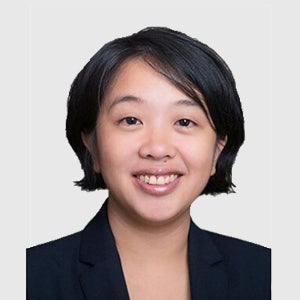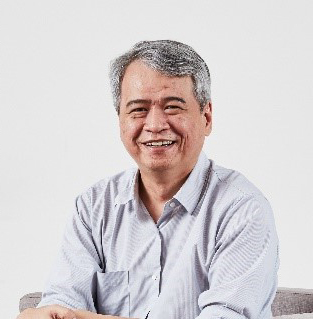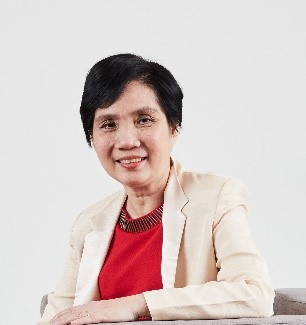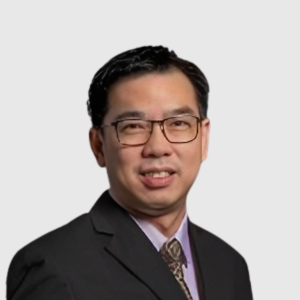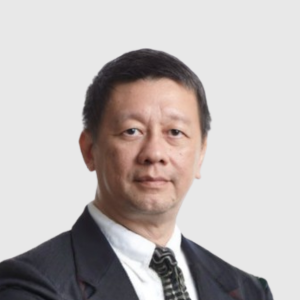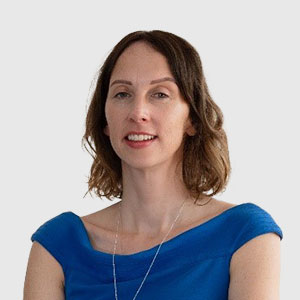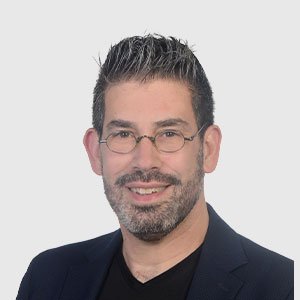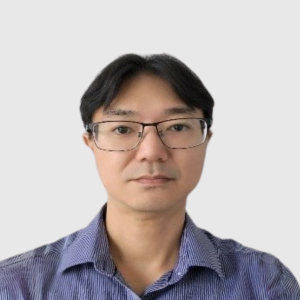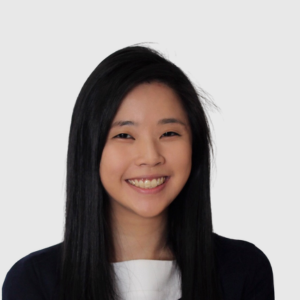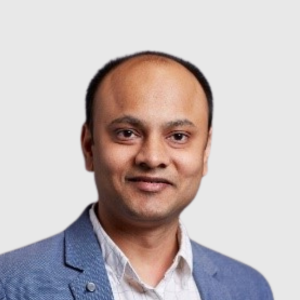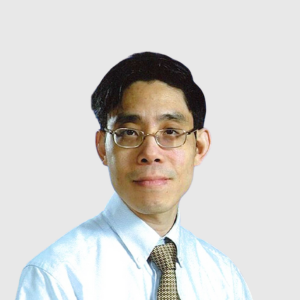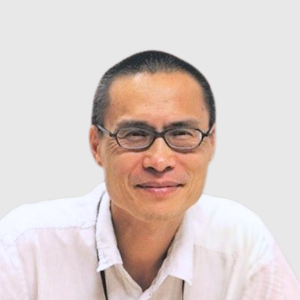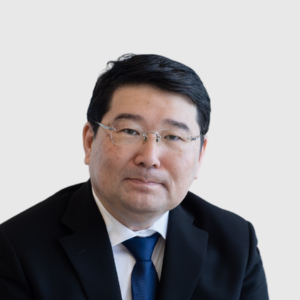Master of Science in Applied Biomedicine (MSc ABM)
Advancing Biomedicine Expertise in Vaccinology, Infectious Diseases, and Drug Development
Overview
The MSc ABM provides students:
- In-depth and updated specialist knowledge and technologies in biomedicine
- Ability to apply biomedical knowledge to practise
- Ability to formulate a hypothesis and design a scientifically sound project
Duration:
30 April 2026
Ideal candidates for the programme
Graduates from this programme can pursue careers in roles such as:
- Medical Technologists
- Biochemists
- Research Scientists
- Toxicologists
- Microbiologists
- Regulatory Specialists
Programme Faculty

A/Prof Kevin Tan Shyong Wei
Programme Director, MSc in
Applied Biomedicine (ABM)
NUS Yong Loo Lin School of Medicine

A/Prof Zhang Yongliang
Co-Programme Director, MSc in
Applied Biomedicine (ABM)
NUS Yong Loo Lin School of Medicine

Dr Jaishree Tripathi
Infectious Diseases Management
Specialisation Coordinator
NUS Yong Loo Lin School of Medicine

Dr Png Chin Wen
Vaccinology and Immunotherapy
Specialisation Coordinator
NUS Yong Loo Lin School of Medicine

Dr Sham Lok-To (Chris)
Capstone Project Coordinator
NUS Yong Loo Lin School of Medicine
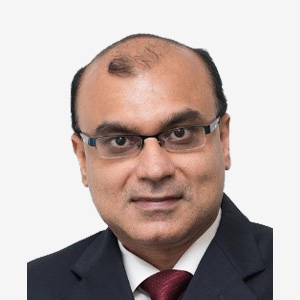
A/Prof Gautam Sethi
Drug Discovery and Development
Specialisation Coordinator
NUS Yong Loo Lin School of Medicine
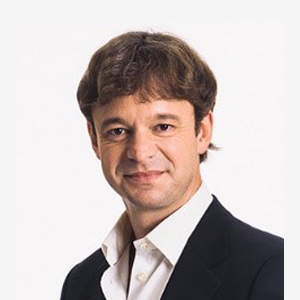
Dr Volker Patzel
Biomedical Innovation & Enterprise
Course Coordinator
NUS Yong Loo Lin School of Medicine

A/Prof Kevin Tan Shyong Wei
Programme Director, MSc in
Applied Biomedicine (ABM)
NUS Yong Loo Lin School of Medicine

A/Prof Zhang Yongliang
Co-Programme Director, MSc in
Applied Biomedicine (ABM)
NUS Yong Loo Lin School of Medicine

Dr Jaishree Tripathi
Infectious Diseases Management
Specialisation Coordinator
NUS Yong Loo Lin School of Medicine

Dr Png Chin Wen
Vaccinology and Immunotherapy
Specialisation Coordinator
NUS Yong Loo Lin School of Medicine

Dr Sham Lok-To (Chris)
Capstone Project Coordinator
NUS Yong Loo Lin School of Medicine

A/Prof Gautam Sethi
Drug Discovery and Development
Specialisation Coordinator
NUS Yong Loo Lin School of Medicine

Dr Volker Patzel
Biomedical Innovation & Enterprise
Course Coordinator
NUS Yong Loo Lin School of Medicine
The MSc ABM is available as a 1-year (full-time) or a 2-year (part-time) degree programme. Students can choose to specialise in Vaccinology and Immunotherapy, Infectious Diseases Management, or Drug Discovery and Development, or pursue the programme without a specialisation.
Graduation Requirements
Total Units Required: 40 Units
To graduate, students have to:
Specialisation (Vaccinology and Immunotherapy, Infectious Diseases Management or Drug Discovery and Development)
Complete 4 core courses (12 units in total)
+Complete 5 compulsory courses within the chosen specialisation (20 units in total)
+Complete either:
Capstone Project (8 units)
2 elective courses from the general elective course list
(8 units in total)
*If a course has already been taken as a compulsory requirement in the specialisation, it cannot be counted again as an elective.
For Infectious Diseases Management Specialisation only: Students may choose one SPH course out of three to count towards their compulsory specialisation requirements.
Non-Specialisation
Complete 4 core courses (12 units in total)
+Complete a combination of elective courses from the general elective course list to fulfil the remaining 28 units
- For example: 1 capstone project (8 units) + 5 elective courses (20 units in total)
Note: Additional tuition fees apply for courses taken beyond the required 40 units for graduation. Please refer to the Tuition Fees tab for details.
Proposed Study Plan
Please refer HERE for the proposed study plan for full-time and part-time students.
Academic Timetable
Please refer HERE for the timetable for Academic Year 2025/2026.
Study Period
- Full-time students are expected to complete the programme within 12 – 24 months. The maximum candidature is 24 months; excluding Leave of Absence (LOA).
- Part-time students are expected to complete the programme within 24 – 36 months. The maximum candidature is 36 months; excluding Leave of Absence (LOA).
Important:
Before submitting your application:
- Download and read the Applicant Guide to the Graduate Admission System (GDA)
- Review the Checklist for Applicants. Please upload the relevant supporting documents according to the checklist when submitting your online application.
Minimum Requirements:
- Bachelor (Hons) degrees in M.B.B.S., Life Sciences (e.g., Biochemistry, Cell Biology, Molecular Biology), Bioengineering, Biotechnology, or a related health sciences discipline. Other qualifications and relevant industrial experience may be considered on a case-by-case basis, subject to approval by the selection committee.
- International applicants from non-English speaking universities must demonstrate English proficiency with a minimum TOEFL score of 85 (Internet-based) or a minimum IELTS Academic score of 6.0. Scores must be valid for two years from the test date and should not have expired at the time of application. Expired scores will not be considered.
Tuition Fees:
Total Tuition Fees (for students enrolled in the Academic Year 2026/2027 only): S$59,500 (inclusive of Goods & Services Tax (GST))
The payment schedule is as follows:
Full Time Students
Part-Time Students
International Students
Year 1 Semester 1
S$29,750.00
S$14,875.00
Year 1 Semester 2
S$29,750.00
S$14,875.00
S$14,875.00
Year 2 Semester 2
S$14,875.00
Acceptance Fee (Including GST):
S$5,000.00
For more information, please visit the Office of the University Registrar website.
- All Singaporeans and Singapore PRs will receive a 40% tuition fee rebate.
- All NUS alumni will receive a 20% tuition fee rebate.
- Upon acceptance of offer, an acceptance fee of S$5000.00 (including GST) will be charged on the Graduate Admission System (GDA). Acceptance fees is non-refundable, non-transferable and will be credited towards the tuition fee once the programme starts.
- Students who take courses beyond the required 40 units for graduation will be charged additional tuition fees. These fees are calculated proportionately, based on the number of additional units taken and the prevailing total programme tuition fees for the student’s year of intake.
The MSc ABM is available as a 1-year (full-time) or a 2-year (part-time) degree programme. Students can choose to specialise in Vaccinology and Immunotherapy, Infectious Diseases Management, or Drug Discovery and Development, or pursue the programme without a specialisation.
Graduation Requirements
Total Units Required: 40 Units
To graduate, students have to:
Specialisation (Vaccinology and Immunotherapy, Infectious Diseases Management or Drug Discovery and Development)
Complete 4 core courses (12 units in total)
Complete 5 compulsory courses within the chosen specialisation (20 units in total)
Complete either
Capstone Project (8 units)
OR
2 elective courses from the general elective course list
(8 units in total)
*If a course has already been taken as a compulsory requirement in the specialisation, it cannot be counted again as an elective.
For Infectious Diseases Management track only: Students may choose one SPH course out of three to count towards their compulsory specialisation requirements.
Non-Specialisation
Complete 4 core courses (12 units in total)
Complete a combination of elective courses from the general elective course list to fulfil the remaining 28 units
- For example: 1 capstone project (8 units) + 5 elective courses (20 units in total)
Note: Additional tuition fees apply for courses taken beyond the required 40 units for graduation. Please refer to the Tuition Fees tab for details.
Proposed Study Plan
Please refer HERE for the proposed study plan for full-time and part-time students.
Academic Timetable
Please refer HERE for the timetable for Academic Year 2025/2026.
Study Period
- Full-time students are expected to complete the programme within 12 – 24 months. The maximum candidature is 24 months; excluding Leave of Absence (LOA).
- Part-time students are expected to complete the programme within 24 – 36 months. The maximum candidature is 36 months; excluding Leave of Absence (LOA).
Important:
The University does not engage external agencies for student recruitment. Candidates should apply directly to the University and not through any agents. Applications submitted through agents will not receive any added advantage and the University reserves the right to reject such application without explanation.
Before submitting your application:
- Download and read the Applicant Guide to the Graduate Admission System (GDA)
- Review the Checklist for Applicants. Please upload the relevant supporting documents according to the checklist when submitting your online application.
Minimum Requirements:
- Bachelor (Hons) degrees in M.B.B.S., Life Sciences (e.g., Biochemistry, Cell Biology, Molecular Biology), Bioengineering, Biotechnology, or a related health sciences discipline. Other qualifications and relevant industrial experience may be considered on a case-by-case basis, subject to approval by the selection committee.
- International applicants from non-English speaking universities must demonstrate English proficiency with a minimum TOEFL score of 85 (Internet-based) or a minimum IELTS Academic score of 6.0. Scores must be valid for two years from the test date and should not have expired at the time of application. Expired scores will not be considered.
Tuition Fees:
Total Tuition Fees (for students enrolled in the Academic Year 2026/2027 only): S$59,500 (inclusive of Goods & Services Tax (GST))
The payment schedule is as follows:
Year 1 Semester 1
Full Time Students
S$29,750.00
Part-Time Students
S$14,875.00
International Students
–
Year 1 Semester 2
Full Time Students
S$29,750.00
S$14,875.00
Year 2 Semester 1
Full Time Students
S$14,875.00
Year 2 Semester 2
Full Time Students
S$14,875.00
Acceptance Fee (Including GST):
S$5,000.00
For more information, please visit the Office of the University Registrar website.
- All Singaporeans and Singapore PRs will receive a 40% tuition fee rebate.
- All NUS alumni will receive a 20% tuition fee rebate.
- Upon acceptance of offer, an acceptance fee of S$5000.00 (including GST) will be charged on the Graduate Admission System (GDA). Acceptance fees is non-refundable, non-transferable and will be credited towards the tuition fee once the programme starts.
- Students who take courses beyond the required 40 units for graduation will be charged additional tuition fees. These fees are calculated proportionately, based on the number of additional units taken and the prevailing total programme tuition fees for the student’s year of intake.
Frequently Asked Questions
The official application requires us to submit a documentary proof of financial support in English. What does this refer to? What document can I submit as financial proof?
What is the maximum candidature?
- Full-time students are expected to complete the programme within 12 – 24 months. The maximum candidature is 24 months; excluding Leave of Absence (LOA).
- Part-time students are expected to complete the programme within 24- 36 months. The maximum candidature is 36 months; excluding Leave of Absence (LOA).
What are the continuation and graduation requirements?
Continuation Requirement:
- For continuation of candidature a student must obtain satisfactory progress during his/her candidature (Coursework), i.e., Student will be issued a warning for any semester in which his/her GPA falls below 3.00. If in the following semester, the student’s GPA again falls below 3.00 but is above 2.50, he/she will be placed on probation.
Student’s candidature may be terminated and refused re-admission if he/she obtains:
- GPA< 1.5 in the first semester of study; or
- GPA< 2.50 for two consecutive semesters of study; or
- GPA< 3.00 for three consecutive semesters of study
Graduation Requirement:
- Read and pass five core courses and five elective courses that are in the course list.
- Obtained a minimum Grade Point Average (GPA) of 3.0 out of 5.0 or equivalently, an average grade of at least B-.
Where can I find the list of courses?
Please refer to NUSMods for more information regarding the courses.
How many courses am I allowed to take per semester?
Am I allowed to change my choice of specialisation?
How do I register for the courses?
Students would be required to register for the courses using Course Registration at Education Records System (CourseReg@EduRec), which is the University’s consolidated course registration platform.
Where can I find the lesson schedule?
If you are unable to find the answer to your query in the list of FAQs, you can email us at mscabm@nus.edu.sg and we will reply to you within 3 working days.
Voices That Inspire

The MSc in Applied Biomedicine equipped me with in-depth and up-to-date specialist knowledge and gave me a better understanding of the technologies employed in the field of biomedicine. The programme covered the way technology worked, treatment and therapy methods as well as delivery to patients — all presented in a clear manner. Being able to gain a deeper understanding of biomedicine through this programme has been extremely beneficial to my professional growth... (and) with its completion, I see myself a step closer to becoming a subject matter expert."
Read the full interview here
Julia Tang
Class of 2025
Expert II, Quality Technical Service, Sanofi Modulus Singapore

The professors not only explained the mechanisms behind immune responses and the latest research developments in depth, but also tailored the content to our backgrounds and learning needs. They invited medical professionals and guest lecturers to share cutting-edge insights, which broadened our horizons. In the Biomedical Innovation and Entrepreneurship course, we learned how to apply what we’d studied to real-world scenarios. Through this process, I realised that scientific research isn't just about laboratory experiments, it’s also about transforming results into real market and social value. This learning experience (at MSc ABM also) taught me to think independently and take initiative in seeking out more meaningful opportunities (at work)."
Read the full interview here
Bi Jiaqi
Class of 2025

The MSc ABM programme emphasises application and transformation. It not only teaches the latest immunological techniques, but also helps us understand the limitations of various vaccines and therapies, and explore ways to overcome them. Many courses include presentation components that train us to structure research into coherent stories using academic language, effectively showcasing our work. This significantly improved my academic communication skills, which will be invaluable in our future careers. The capstone project further strengthened this learning experience by helping us master experimental techniques and develop a scientific mindset that will undoubtedly make us more competitive."
Read the full interview here
Li Yisong
Class of 2025




